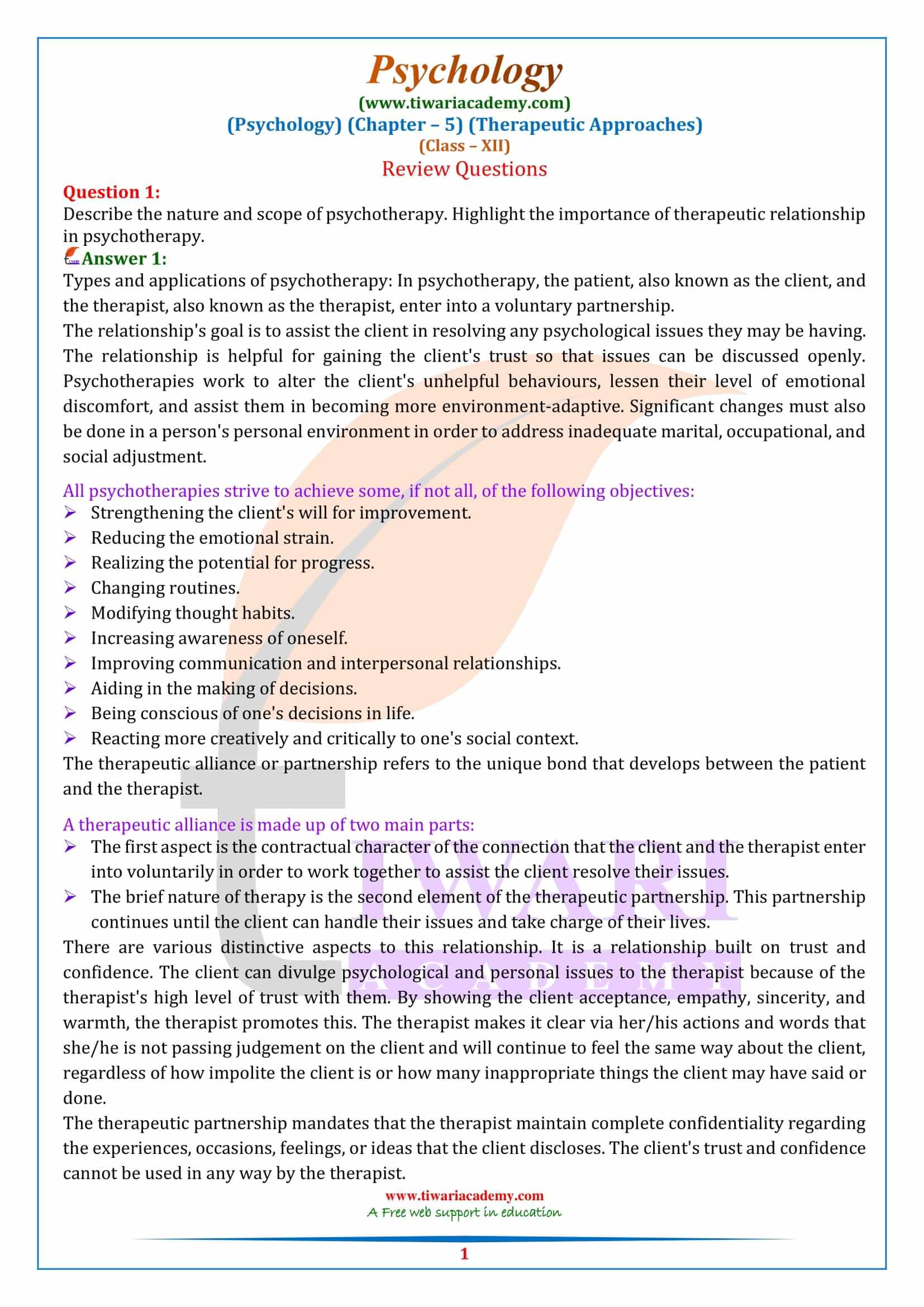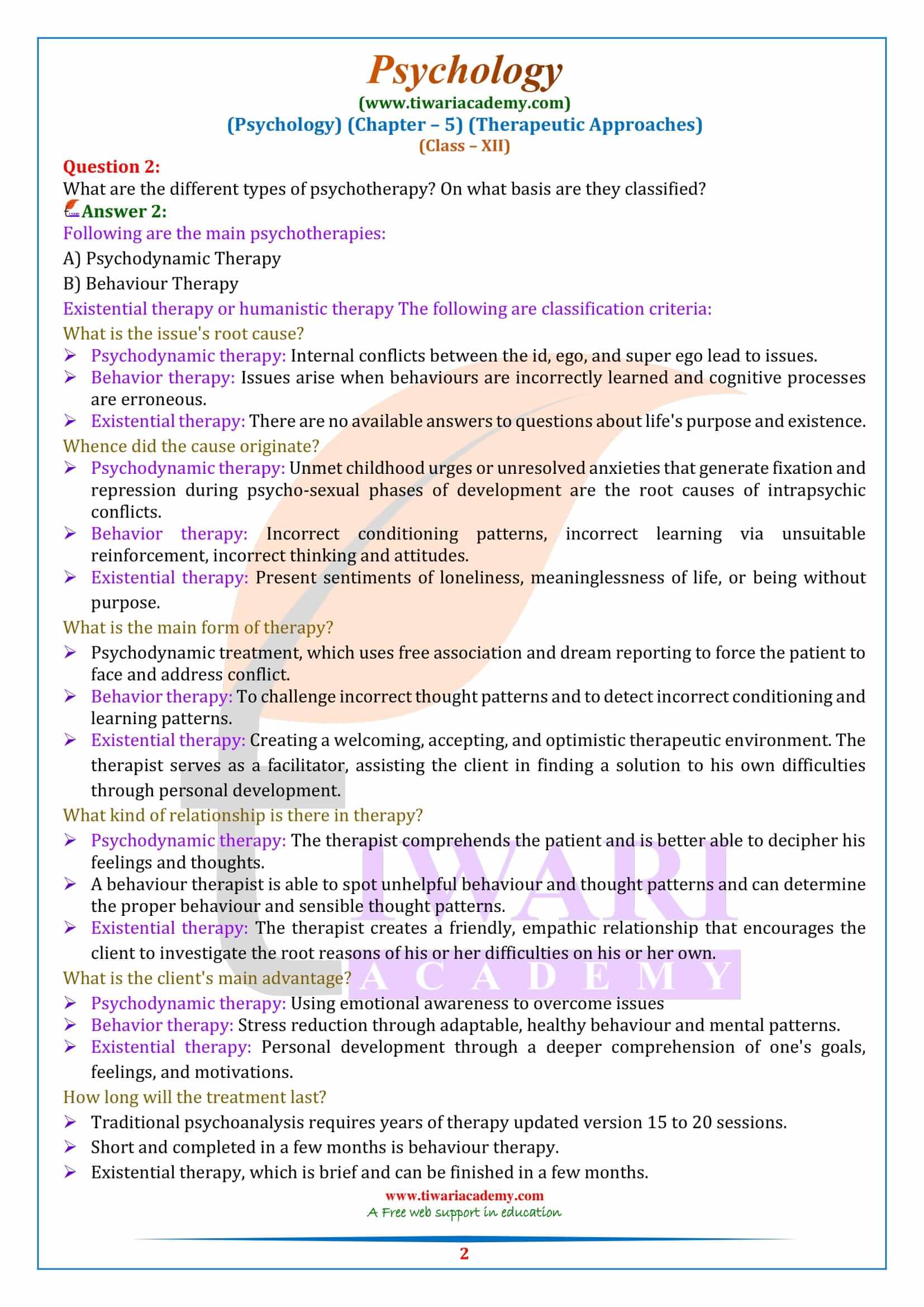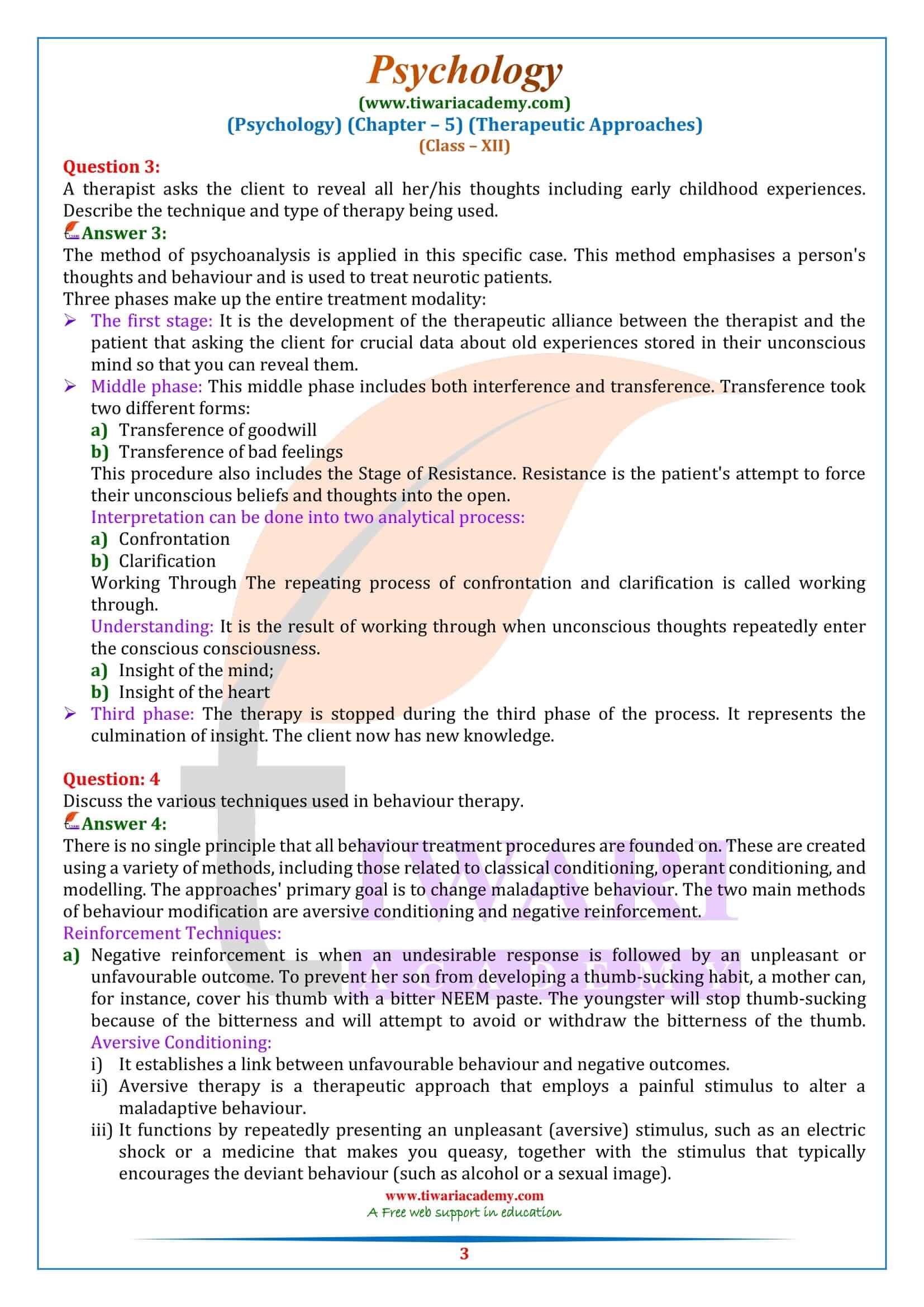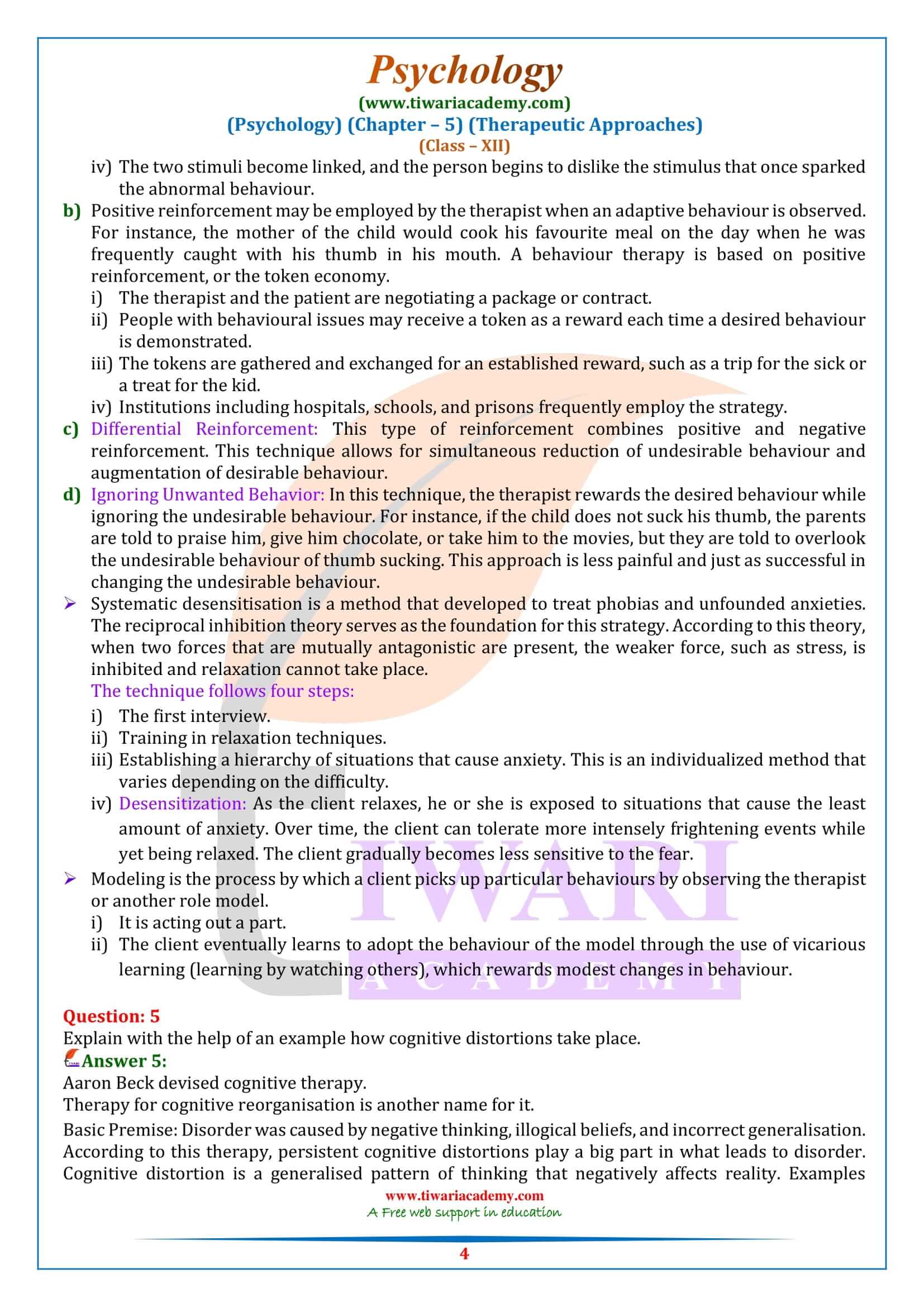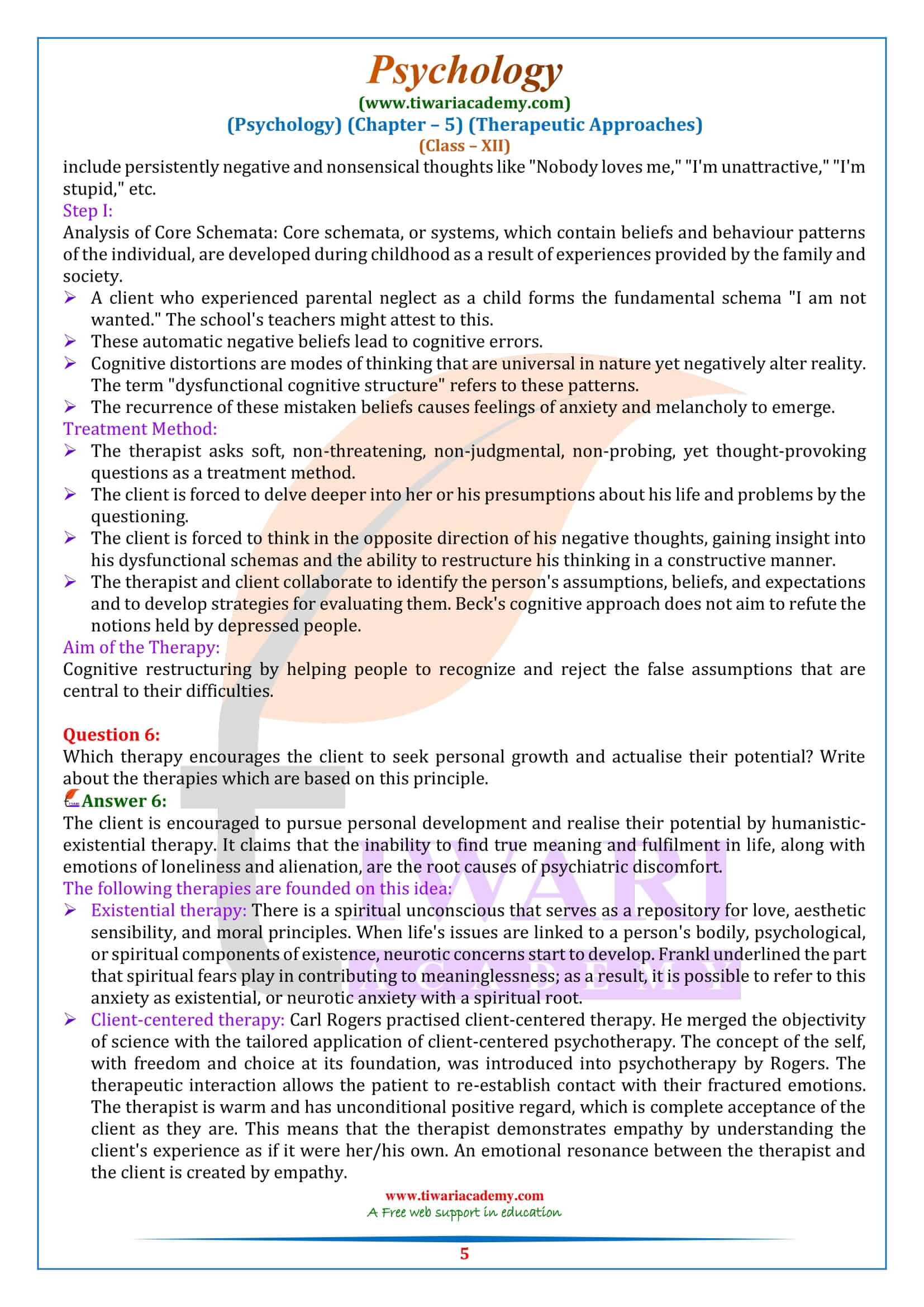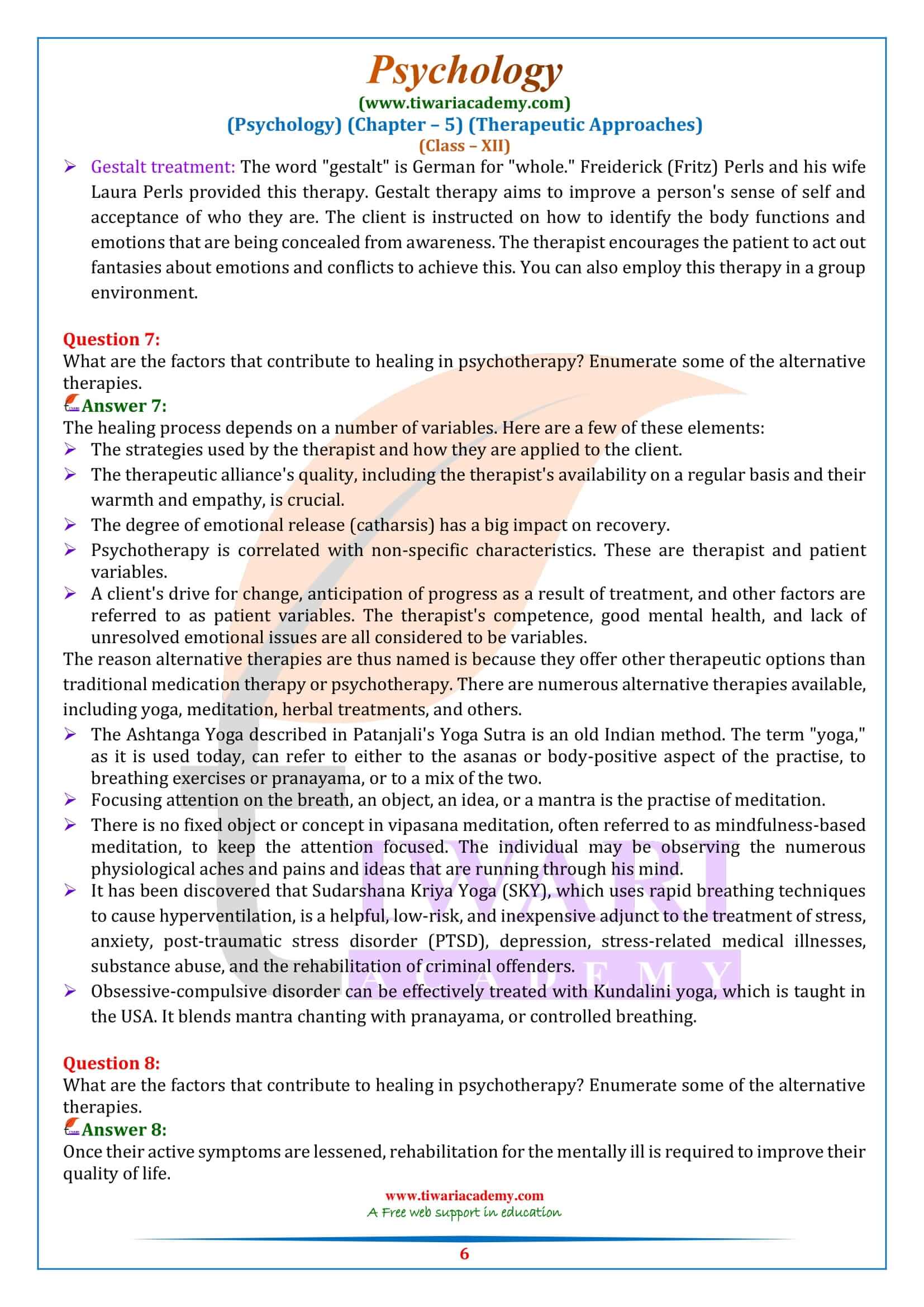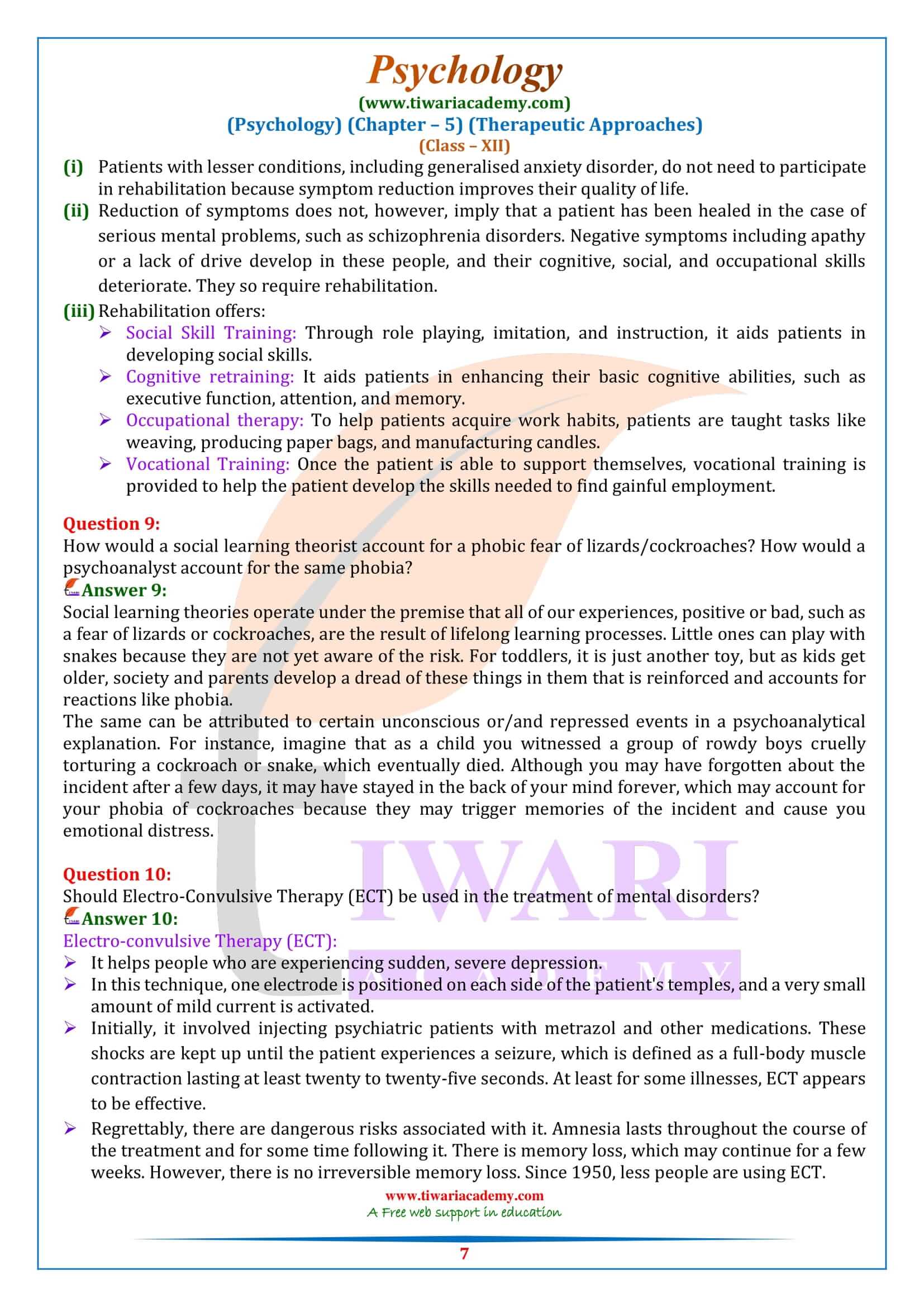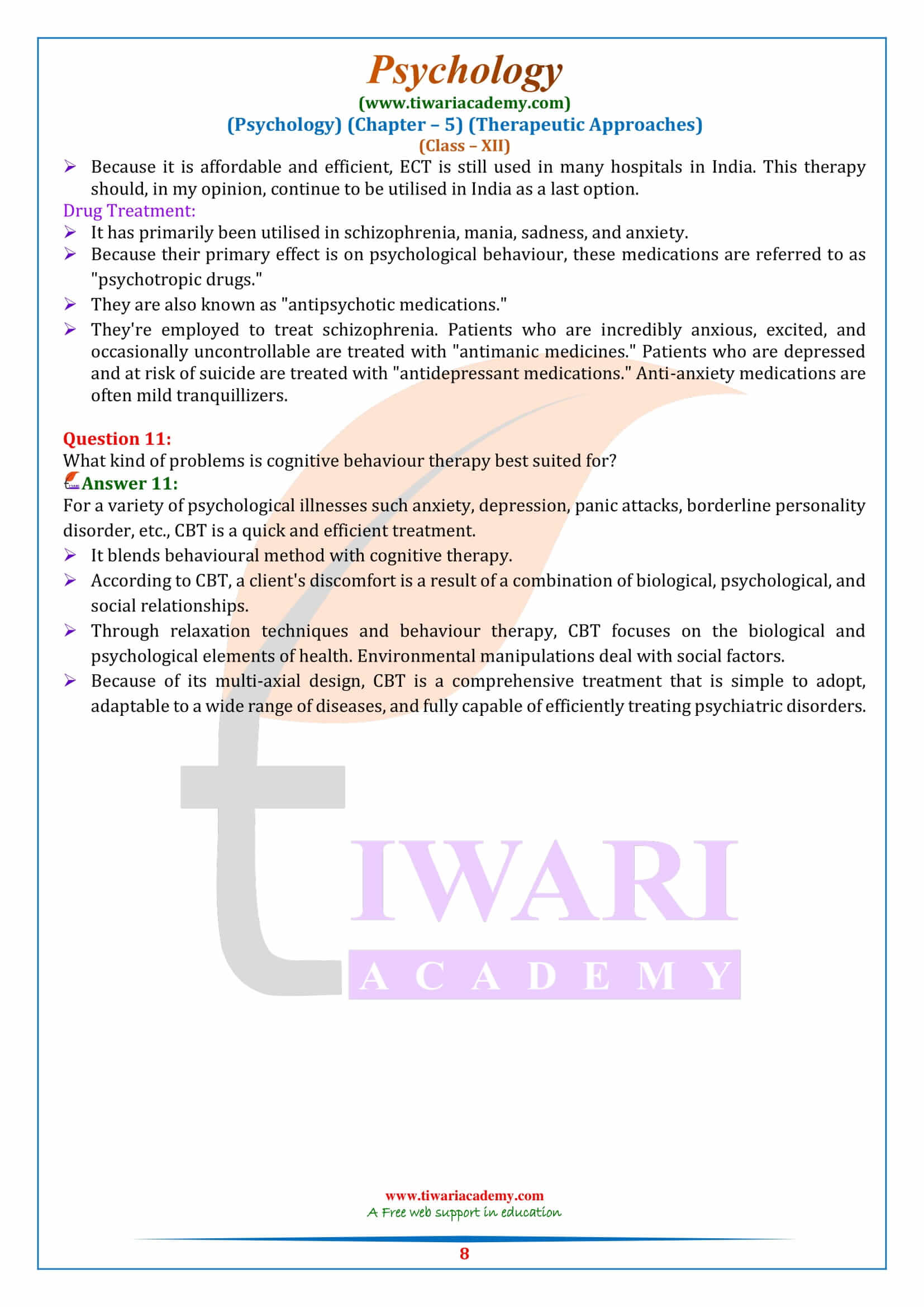NCERT Solutions for Class 12 Psychology Chapter 5 Therapeutic Approaches with multiple choice questions and extra questions to prepare CBSE exams 2024-25. Class 12 Psychology chapter 5 MCQ and extra question answers are important for revision during exams.
NCERT Solutions for Class 12 Psychology Chapter 5
Class 12 Psychology Chapter 5 Therapeutic Approaches Question Answers
What kind of problems is cognitive behaviour therapy best suited for?
For a variety of psychological illnesses such anxiety, depression, panic attacks, borderline personality disorder, etc., CBT is a quick and efficient treatment.
- It blends behavioural method with cognitive therapy.
- According to CBT, a client’s discomfort is a result of a combination of biological, psychological, and social relationships.
- Through relaxation techniques and behaviour therapy, CBT focuses on the biological and psychological elements of health. Environmental manipulations deal with social factors.
- Because of its multi-axial design, CBT is a comprehensive treatment that is simple to adopt, adaptable to a wide range of diseases, and fully capable of efficiently treating psychiatric disorders.
Should Electro-Convulsive Therapy (ECT) be used in the treatment of mental disorders?
Electro-convulsive Therapy (ECT):
It helps people who are experiencing sudden, severe depression.
In this technique, one electrode is positioned on each side of the patient’s temples, and a very small amount of mild current is activated.
Initially, it involved injecting psychiatric patients with metrazol and other medications. These shocks are kept up until the patient experiences a seizure, which is defined as a full-body muscle contraction lasting at least twenty to twenty-five seconds. At least for some illnesses, ECT appears to be effective.
Regrettably, there are dangerous risks associated with it. Amnesia lasts throughout the course of the treatment and for some time following it. There is memory loss, which may continue for a few weeks. However, there is no irreversible memory loss. Since 1950, less people are using ECT.
Because it is affordable and efficient, ECT is still used in many hospitals in India. This therapy should, in my opinion, continue to be utilised in India as a last option.
Drug Treatment:
- It has primarily been utilised in schizophrenia, mania, sadness, and anxiety.
- Because their primary effect is on psychological behaviour, these medications are referred to as “psychotropic drugs.”
- They are also known as “antipsychotic medications.”
- They’re employed to treat schizophrenia. Patients who are incredibly anxious, excited, and occasionally uncontrollable are treated with “antimanic medicines.” Patients who are depressed and at risk of suicide are treated with “antidepressant medications.” Anti-anxiety medications are often mild tranquillizers.
How would a social learning theorist account for a phobic fear of lizards/cockroaches? How would a psychoanalyst account for the same phobia?
Social learning theories operate under the premise that all of our experiences, positive or bad, such as a fear of lizards or cockroaches, are the result of lifelong learning processes. Little ones can play with snakes because they are not yet aware of the risk. For toddlers, it is just another toy, but as kids get older, society and parents develop a dread of these things in them that is reinforced and accounts for reactions like phobia.
The same can be attributed to certain unconscious or/and repressed events in a psychoanalytical explanation. For instance, imagine that as a child you witnessed a group of rowdy boys cruelly torturing a cockroach or snake, which eventually died. Although you may have forgotten about the incident after a few days, it may have stayed in the back of your mind forever, which may account for your phobia of cockroaches because they may trigger memories of the incident and cause you emotional distress.
What are the factors that contribute to healing in psychotherapy? Enumerate some of the alternative therapies.
Once their active symptoms are lessened, rehabilitation for the mentally ill is required to improve their quality of life.
(i) Patients with lesser conditions, including generalised anxiety disorder, do not need to participate in rehabilitation because symptom reduction improves their quality of life.
(ii) Reduction of symptoms does not, however, imply that a patient has been healed in the case of serious mental problems, such as schizophrenia disorders. Negative symptoms including apathy or a lack of drive develop in these people, and their cognitive, social, and occupational skills deteriorate. They so require rehabilitation.
(iii) Rehabilitation offers:
- Social Skill Training: Through role playing, imitation, and instruction, it aids patients in developing social skills.
- Cognitive retraining: It aids patients in enhancing their basic cognitive abilities, such as executive function, attention, and memory.
- Occupational therapy: To help patients acquire work habits, patients are taught tasks like weaving, producing paper bags, and manufacturing candles.
- Vocational Training: Once the patient is able to support themselves, vocational training is provided to help the patient develop the skills needed to find gainful employment.
